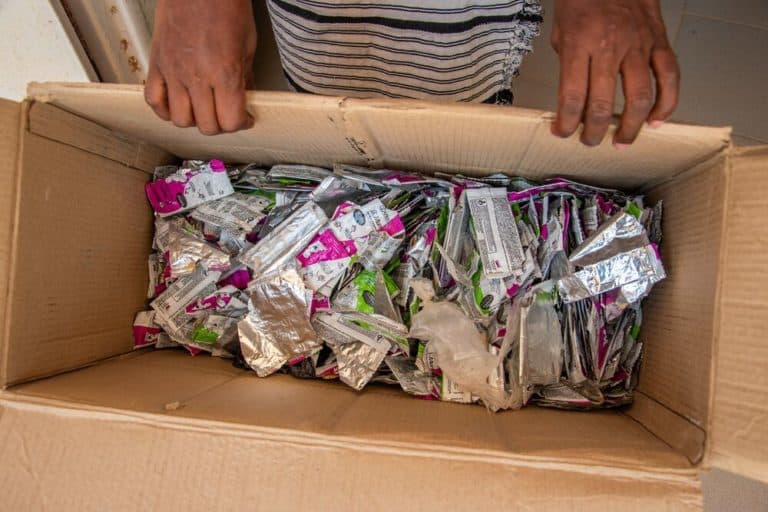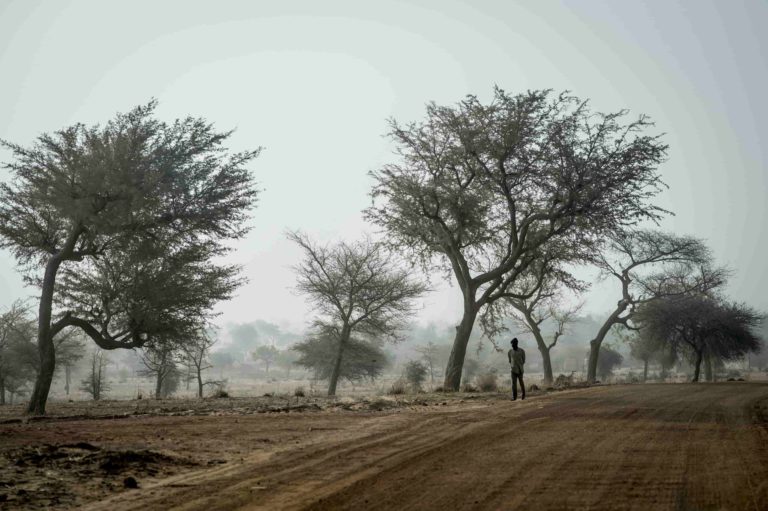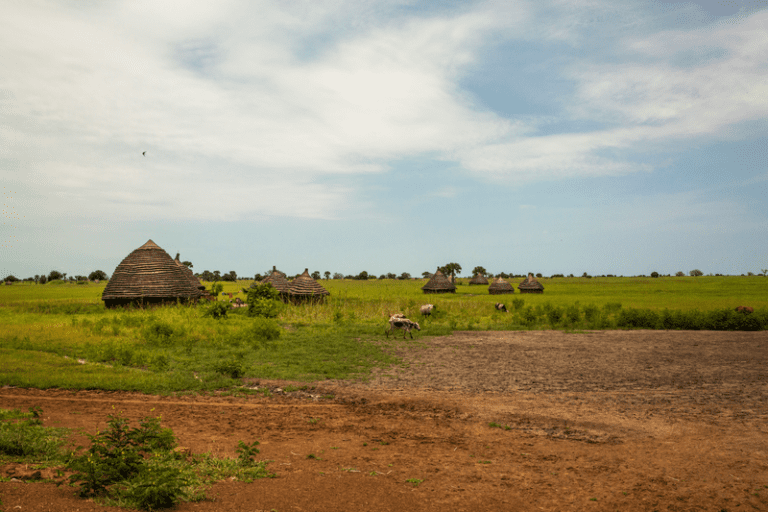Humanitarian aid workers can also be polluters. As such, they are caught in an unfortunate paradox: by providing aid, they contribute to accelerating climate change, which in turn exacerbates the humanitarian crises to which they respond. It’s a case of the snake biting its own tail.
Over the past two years, ALIMA has reviewed and drastically changed the way it works by modifying its most polluting, greenhouse gas-emitting practices and helping national health services adapt to the consequences of climate change.
Below is a selection of lessons learned and strategic outlooks from ALIMA’s first progress report.
Climate change is reshaping and complicating the contexts in which our teams work in the field.
As an emergency medical NGO operating in 14 countries to guarantee access to health care for the most vulnerable populations, ALIMA is at the frontline of all 21st-century challenges: social and economic crises, intensification of population displacements, the increase of armed conflicts… and climate disruption.
Climate change has significantly changed and complicated the contexts in which we work:. Cchanges in the spread and frequency of existing diseases, the emergence of new diseases, increased pressure on health infrastructure, natural disasters, supply chain disruptions, and dependence on fossil fuels: Climate change demands that we rethink the way we work and anticipate the continued evolution of an already deteriorating situation. With ever-increasing humanitarian needs, we must move forward with the same high standards of care,and above all, with the same mission: to be as close to the patient as possible.
Humanitarians commit and act for solutions to climate change
As responsible medical professionals, we want to address environmental issues. We owe it to the people we support and care for. It would be counterproductive and hypocritical not to acknowledge these issues, as we are part of the problem. The global model of humanitarian action is still largely dependent on fossil fuels and relies on long, complex supply chains. Every day, we travel by land and air to care for patients. We also consume and produce biomedical and household waste.
If we are to fight against climate change and ensure a decent life for the people we care for, we must recognize this reality and propose solutions. With this in mind, it is necessary to define an action plan.
Reducing the NGO’s greenhouse gas emissions
ALIMA has committed to the goal of reducing its greenhouse gas emissions by 50% (in intensity) by 2030, in line with the recommendations of the IPCC and the international scientific consensus […].
Our roadmap shows that 85% of the effort needed to achieve our goal is based on five priority solutions: gradually replacing air freight with sea freight; decarbonizing our energy production and consumption by developing the use of renewable energy; reducing air travel; optimizing the fuel consumption of vehicles; and promoting responsible purchasing.
Accelerating the ecological transition in 2024 in response to the climate emergency
After almost two years of action, the lessons we have learned allow us to revise or confirm ALIMA’s perspectives. Here are five strategic outlooks for 2024:
- An environmental action plan in each ALIMA country
After each environmental plan training (organized in each ALIMA country), the country teams will get the tools to define and develop their own annual country action plan, including activities, indicators, and resources dedicated to the implementation of the roadmap. The environmental action team at headquarters will monitor each country’s action plan to ensure that indicators are met, resources are mobilized, and proposed steps are implemented. Technical support to field teams will also be strengthened and expanded.
- Refining our strategic priorities and objectives
To be credible and applicable at a project level, our priorities must be realistic. For example, the carbon footprint calculation for 2022 shows that ALIMA’s purchases and fixed assets account for a larger share of total GHG emissions than originally estimated. Knowing this, we will adjust our strategy. Particular emphasis will be placed on collective action with others in the sector, dialogue with key suppliers for our medical purchases, life-cycle analysis of high-volume items, integration of new criteria into our purchasing procedures, and the use of recognized local suppliers. In addition, we will carry out an analysis to reassess the relevance of certain indicators in the environmental roadmap.
- Performing environmental impact analyses
In 2022 and 2023, ALIMA trained its teams to use NEAT+ (a risk analysis tool developed by UNEP-OCHA and other humanitarian actors) to identify and prevent environmental risks associated with its medical projects. In order to make this type of analysis more systematic, ALIMA intends to adapt the tool and train more humanitarian workers to integrate environmental risk management into humanitarian health projects.
- Measuring the waste produced by our activities
In 2024, ALIMA plans to calculate more accurately the amount of waste emitted as a result of its operations (and develop a comprehensive waste typology), by deploying a waste tracking plan across hospitals, health centers, mobile clinics and remote health posts. This work is already underway as of the second half of 2023. This will help reduce local pollution associated with biomedical and household waste by identifying the best solutions to use throughout the life cycle of waste items.
- Capitalizing on our environmental actions
Capitalization is essential for ALIMA because it highlights inspiring practices that can be replicated across all NGO projects, and even across the humanitarian sector. For this reason, we will take steps to encourage knowledge-sharingcommunicationexchanges between teams in the field, staff at our headquarters, and with the rest of the humanitarian community. Identifying best practices, highlighting successes, and sharing lessons learned will create a ripple effect that will inspire the entire organization and aid sector.



